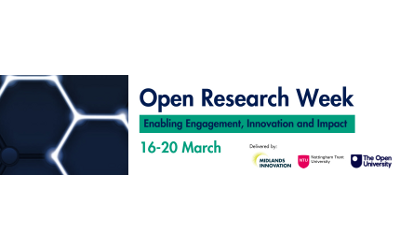OU wins two categories in Guardian University Awards

The Open University (OU) has won the teaching excellence and digital innovation categories in the Guardian University Awards 2018.
Awarded at a ceremony in London last night (24 April), where the innovative ways that universities are updating themselves to meet the demands of an inclusive, diverse, digital world were celebrated, two OU teams received their awards.
Acting Vice-Chancellor of the OU, Professor Mary Kellett said: “This is fantastic news. To win not just one but two prestigious national awards – teaching excellence and digital innovation - is an amazing tribute to the OU. I am so proud of the brilliant team effort across the OU, STEM, Learning & Teaching Innovation, and IT.
“The Open University is always striving to find new ways to improve the experience of our students and make learning even more accessible, so having the judges describe our work as game-changing is a great accolade.”
Teaching excellence
A team led by Professor Nicholas Braithwaite, Associate Dean (Academic Excellence), received the teaching excellence award for developing an Internet of Laboratory Things, which enhances the experience of around 7,000 STEM students each year.
The project, part of the OpenSTEM Labs, connects Science, Technology, Engineering and Mathematics (STEM) students to instrumentation and equipment for learning and research over the internet 24 hours a day, so that distance is no longer a barrier. It significantly extends earlier provision of online tools for practical teaching and enables access to an unprecedented level of detail for research projects.
Commenting on the OU’s success in teaching excellence, Professor Braithwaite said: “The OpenSTEM Labs build on an earlier initiative supported by The Wolfson Foundation, developed further through a HEFCE capital award for teaching practical subjects at a distance. We’ve used the inclusive affordances of the internet and some sophisticated laboratory kit to offer a wide range of opportunities for active learning.”
Digital innovation
A team led by Dr Steve Rycroft, Head of Learning and Teaching Environments, received the digital innovation award for the Accessible Interactive Media Player (AIM). This project delivers highly accessible audio and video content with exciting new options to support learning for all students. It runs in all modern web browsers and devices, and has advanced accessibility features, such as interactive transcripts and full keyboard control, and options for innovative navigation tools, like chapter markers, playlists and in-video annotations. It was rolled out for all modules from late 2017 and the AIM player is now available for many OU students.
Commenting on the OU’s success in digital innovation, Dr Rycroft said: “It’s fantastic to be recognised in this year’s Guardian awards! The OU has always used a variety of technologies to deliver innovative teaching and distance learning. We’re particularly proud of creating digital tools that can improve the learning experience for disabled people, but we’ve also seen that all students can benefit from these kind of developments, in the spirit of universal design.
“This accessible media player project was a great collaboration between the LTI Learning Systems team and our amazing IT developers – skilled educational technologists and experienced developers working closely together, with a strong culture of creativity and continuous improvement, and a genuine passion for accessibility. This shows the OU’s continued commitment to improving accessibility for our students.”
Read more about the award-winning OpenSTEM Lab
Read more about the full list of Guardian University Awards winners
Contact our news team
For all out of hours enquiries, please telephone +44 (0)7901 515891
Contact detailsNews & articles

Open Research Week to spotlight innovation in 2026
Open Research Week will return from 16–20 March 2026, uniting Open University researchers and partners to explore how open practices drive engagement, innovation and societal benefit.